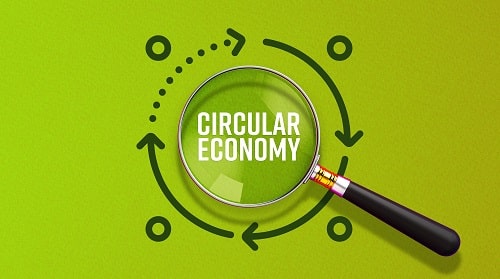High-profile aviation safety incidents involving pilots with mental health issues have shone a light on how the airline industry supports the mental wellbeing of its frontline workers. Experts are calling for a different approach that would make it easier for pilots and other aviation workers to seek help when they need it.
Features
Clearer skies ahead? How the aviation industry is taking a different approach to pilot mental health
When a mentally ill Germanwings co-pilot deliberately crashed an Airbus A320 aircraft into the French Alps in March 2015 killing everyone on board, the mental health of airline pilots became front page news around the world. Andreas Lubitz had not disclosed his diagnosis to his employer – possibly, concluded investigators, for fear of losing his pilot’s licence.
 Experts say that while the aviation industry and its regulators have made some progress towards mitigating some of the risks to safety posed by mental health issues in the cockpit, there is still a long way to go. Photograph: iStock/Visual Art Agency
Experts say that while the aviation industry and its regulators have made some progress towards mitigating some of the risks to safety posed by mental health issues in the cockpit, there is still a long way to go. Photograph: iStock/Visual Art Agency
Nine years on, experts say that while the aviation industry and its regulators have made progress towards mitigating some of the risks to safety posed by mental health issues in the cockpit, there is still a long way to go. They say there is more work to do to make it easier and less punitive for pilots and other aviation professionals to come forward and seek help, and that the adoption of a more universal approach that reflects the global nature of the airline industry is needed.
More recent incidents, such as an alleged attempt in October 2023 by an off-duty Alaska Airlines pilot – who was travelling in the jump seat on a flight operated by sister carrier Horizon Air – to shut down the aircraft’s engines mid-flight, raise questions about the aviation industry’s procedures for dealing with mental health issues.
“The second highest cause of fatalities in Western-built aircraft since 2011 is pilot murder-suicide,” Captain Dave Fielding, a welfare representative at the British Airline Pilots’ Association (BALPA), chair of the International Peer Assist Aviation Coalition (IPAAC) and a British Airways Airbus A380 pilot, tells Safety Management, citing a study conducted by Bloomberg News in June 2022.
He adds: “When you have an accident, there’s usually something very definitive and black and white that’s gone wrong – a part’s not been manufactured properly or has broken, or a procedure wasn’t written properly or trained properly, or didn’t exist. Then, the job of the accident investigation boards is to examine the root causes of the accident, put mitigating measures in place and then put metrics in to measure the effectiveness of that.
“The problem with Germanwings was that it was mental health, which is the opposite of black and white.”
 Changes were put in place after a mentally-ill Germanwings pilot deliberately crashed into the Alps in March 2015. Photograph: iStock/horstgerlach
Changes were put in place after a mentally-ill Germanwings pilot deliberately crashed into the Alps in March 2015. Photograph: iStock/horstgerlach
Black Swan event
At first, says Captain Fielding, the aviation industry “struggled” to come to terms with what happened to the Germanwings flight, describing it as a Black Swan event – in other words, an extremely rare incident that is difficult to predict and plan for.
Other similar incidents, however, suggest that “Germanwings was not a Black Swan event,” he adds, pointing to examples including Egyptair Flight 990, which crashed into the Atlantic Ocean shortly after departing New York for Cairo in October 1999 killing all 217 people on board. The US National Transportation Safety Board concluded that the Egyptair crash was caused by the co-pilot’s “manipulation of the controls” when he was alone in the cockpit.
Captain Fielding also cites a “near-miss” involving a JetBlue Airways flight in 2012, during which the captain had an apparent mental breakdown and had to be restrained by passengers while an off-duty pilot took control of the aircraft and made an emergency landing in Texas.
“Big picture-wise, pilot mental health and performance is the new front on flight safety, and is where we should be focusing our efforts,” he says. The good news is that those efforts do very much appear to be underway.
Earlier this year, the Royal Aeronautical Society (RAeS) published a paper on the mental health challenge to civil aviation safety, covering both psychosocial risk management and mental health. The paper makes a series of recommendations aimed at helping the industry to develop a “coherent, practical approach” to address mental health issues within its workforce.
On publishing the report, RAeS chief executive David Edwards said: “The civil aviation industry is shifting more focus onto the important topic of mental health, highlighted by the Germanwings and Alaska Airlines incidents. Whilst the industry is doing more to support staff who are already facing mental health issues, there remains a lack of psychosocial risk management systems to prevent the development of mental health issues in the first place.
“We believe that this study will highlight the impact mental health has on the civil aviation industry and, with further support and willingness from organisations, allow it to become an important contributor in mental health psychosocial risk management.”
The recommendations put forward in the report include: creating a statement of intent to be discussed at a global level and co-ordinated by the International Civil Aviation Organization (ICAO); sponsoring research into current prevalence rates for mental ill health in the aviation sector; producing a summary of technology-enabled solutions that could allow “at-scale monitoring and mitigation to reflect the industry’s global 24/7/365 footprint”; and liaising with the aviation insurance sector, “to assess the implications of incorporating psychosocial risk and mental health management programmes”.
The report’s lead author, Marc Atherton – a registered aviation psychologist, partner at Allaxa and chair of the Royal Aeronautical Society’s Human Factors Wellbeing Specialist Group – tells Safety Management that he got involved in this area after the Germanwings crash, “because it was painfully obvious that the global industry had a very good process around safety for physical risks, for operational risks and for technical risks, but what seemed to be missing was a coherent approach to the mental health and performance risk of all of the safety-critical groups in the industry”.
While pilots are “the poster boys and girls” for the airline industry, Atherton says it has become apparent that they are “not the only risk vector that can impact safety as a consequence of poor mental health”. It is also important, therefore, to look after the mental health of other aviation workers, such as flight attendants, air traffic controllers and engineers, he adds.
 There are calls for the industry to better support the mental wellbeing of other aviation workers, in addition to pilots. Photograph: iStock/izusek
There are calls for the industry to better support the mental wellbeing of other aviation workers, in addition to pilots. Photograph: iStock/izusek
Peer support
Following the Germanwings incident, the European Union Aviation Safety Agency (EASA) introduced a requirement for all EU-regulated airlines to provide peer support programmes for pilots, which aim to identify wellbeing issues and provide support at an early stage. However, Atherton highlights concerns that not enough pilots are coming forward and using these services.
“What we are seeing from the peer support programmes is if the incidence rate [of having some kind of mental health issue at some point] is 20 per cent, which is fairly common for the general population, only three to four per cent of pilots approach a peer support programme,” he says. “That poses an interesting question: what are the other 16 to 17 per cent, who you can be reasonably confident have some kind of issue, doing? We have no idea, and that’s concerning.”
So, why aren’t pilots with mental health concerns seeking support?
“Pilots are very nervous about coming forward with an admission, for fear that it will impact their licence – that’s on both sides of the Atlantic and, generally, globally,” explains Atherton. “In my view, the situation is still biased in a way that would make it more difficult for a pilot to admit they have a problem and seek help than it would be for them to not admit it and try to deal with it outside of the aviation industry – that’s what happened in the Alaska Airlines case, according to the media reports.”
In an interview with ABC News in August, the pilot involved in the Alaska Airlines incident, Captain Joseph Emerson, said that he had been struggling to come to terms with the death of a close friend and had taken psychedelic mushrooms days before the flight, which had lasting hallucinogenic effects. He said he now wants to raise awareness about pilot mental health and the importance of seeking help.
Under current regulations, airline pilots must undergo regular medical checks to keep their flying licences. If they develop a mental health condition between checks and disclose it, they risk being temporarily grounded. The problem with this approach, as Captain Fielding points out, is that “no one can force you to reveal a mental health issue”.
Indeed, a study in 2022 led by William R Hoffman MD, a neurologist and affiliated assistant professor of aviation at the University of North Dakota’s John D. Odegard School of Aerospace Science, found that 56.1 per cent of the 3,765 U.S. pilots who participated in the survey reported a “history of healthcare avoidance behaviour” due to a “fear of losing their aeromedical certificate”.
As Dr Hoffman observes in an article published in Medpage Today, “airline pilots are only one of a few professionals who must disclose all their health information (often including speaking to a mental health therapist) in order to work”. He questions whether the current clinical approach is the right one and suggests that transitioning to a more performance-based approach could be the answer.
“Can the pilot perform their duties regardless of the mental health labels in their medical record?” writes Dr Hoffman. “Such an approach would focus on pilot peer assessments and recurrent cognitive testing focused on performance.”
Signs of change
There are signs that aviation regulators are starting to move towards a different approach when it comes to pilot mental health. In Europe, EASA “led the way” and “really changed the game” when it mandated that airlines must offer peer support programmes, says Captain Fielding. He also points to Australia’s Civil Aviation Safety Authority (CASA), which, he says, has done “revolutionary stuff in trying to come to a regime which says, ‘provided you’re functional and you can fly an aeroplane, then we want you flying’”.
Two years ago, CASA presented a working paper suggesting that ICAO develop guidance to help regulators decide whether and how a pilot with symptoms of mental distress could keep flying, based on information gathered through a peer support programme.
In an article published in 2022 in CASA’s in-house magazine, Flight Safety Australia, the regulator’s principal medical officer, Dr Kate Manderson, wrote: “The aviation medical profession has been talking about this issue for more than two decades and, hopefully, support is now building for a global approach aligned with ICAO standards that oblige industry to embrace preventative health measures.
“Just like we do regular checks and maintenance on our aircraft to make sure problems are fixed before they get worse, we want our aviation people to recognise a problem and seek support before it becomes too serious.”
 Photograph: iStock/Jag_cz
Photograph: iStock/Jag_cz
Earlier this year, the US Federal Aviation Administration (FAA) expanded the list of antidepressant medications that could be used by pilots, to include three additional prescribed drugs. This change in policy was described in April by the Air Line Pilots Association as a “monumental shift” because, “for decades the FAA treated a diagnosis of depression and any corresponding use of psychotropic drugs (i.e. those that treat chemical levels in the brain involved in mental-health disorders) as medically disqualifying”.
The role of peer support programmes, says Captain Fielding, is to act as a bridge to help aviation industry professionals who are struggling with a mental health issue to get the support they need before their problems spiral.
“We’re not the answer – we’re part of a multi-faceted jigsaw,” he says. “We build up trust so that if they have problems, they can come forward, get help for those problems in a non-punitive way and get back to full productivity as soon as it is safe to do so.”
There is still a long way to go on making it easier for pilots and other aviation professionals to come forward and seek help for mental health issues – not least because of the global and multi-jurisdictional nature of the industry, and the insurance and legal implications of any associated risks. This is why a harmonised approach is so important, according to Atherton.
The RAeS paper has generated “a lot of response” from regulators around the world, he says, and the consensus appears to be that it contains “recommendations that could be used as a starting point for developing a coherent approach”.
FEATURES

How to build circular economy business models
By Chloe Miller, CC Consulting on 07 April 2025
Widespread adoption of a circular economy model by business would ensure greater environmental and economic value is extracted and retained from raw materials and products, while simultaneously reducing carbon emissions, protecting the environment and boosting business efficiency and reputation.

What does the first year on an accelerated net zero path have in store for UK businesses?
By Team Energy on 07 April 2025
The UK is halfway to net zero by 2050 and on a new, sped-up net zero pathway. In light of this, Graham Paul, sales, marketing & client services director at TEAM Energy, speaks to TEAM Energy’s efficiency and carbon reduction experts about the future of energy efficiency and net zero in the UK.

Aligning organisational culture with sustainability: a win, win for the environment and business
By Dr Keith Whitehead, British Safety Council on 04 April 2025
The culture of an organisation is crucial in determining how successfully it implements, integrates and achieves its sustainability and environmental goals and practices. However, there are a number of simple ways of ensuring a positive organisational culture where everyone is fully committed to achieving excellent sustainability performance.



